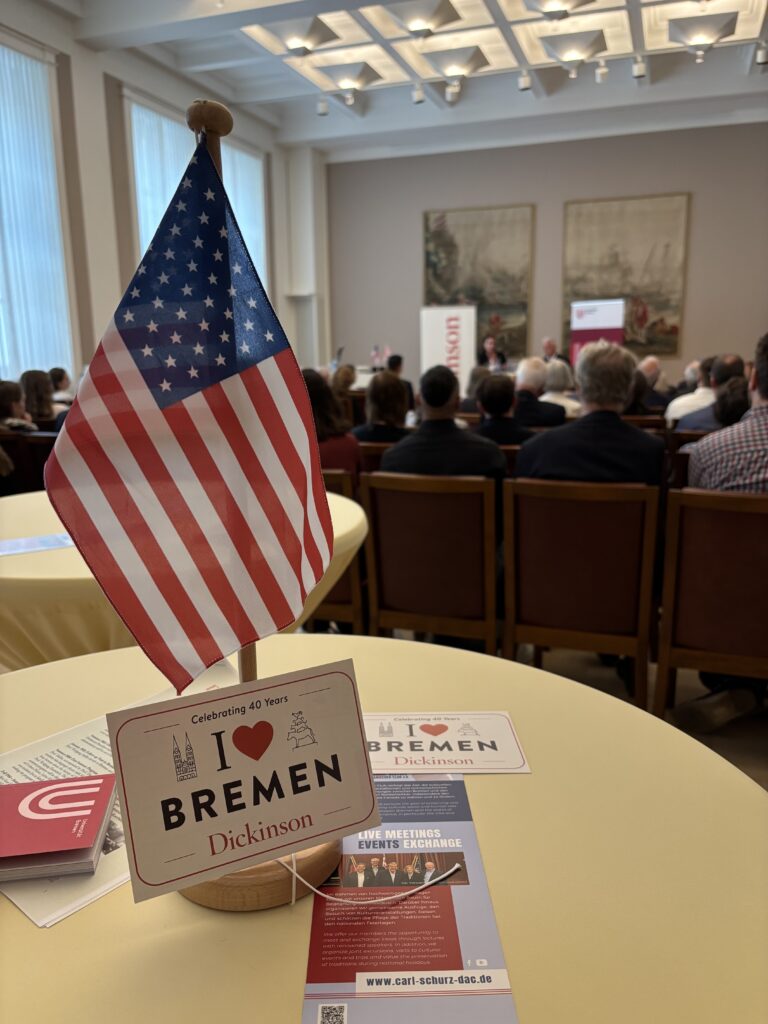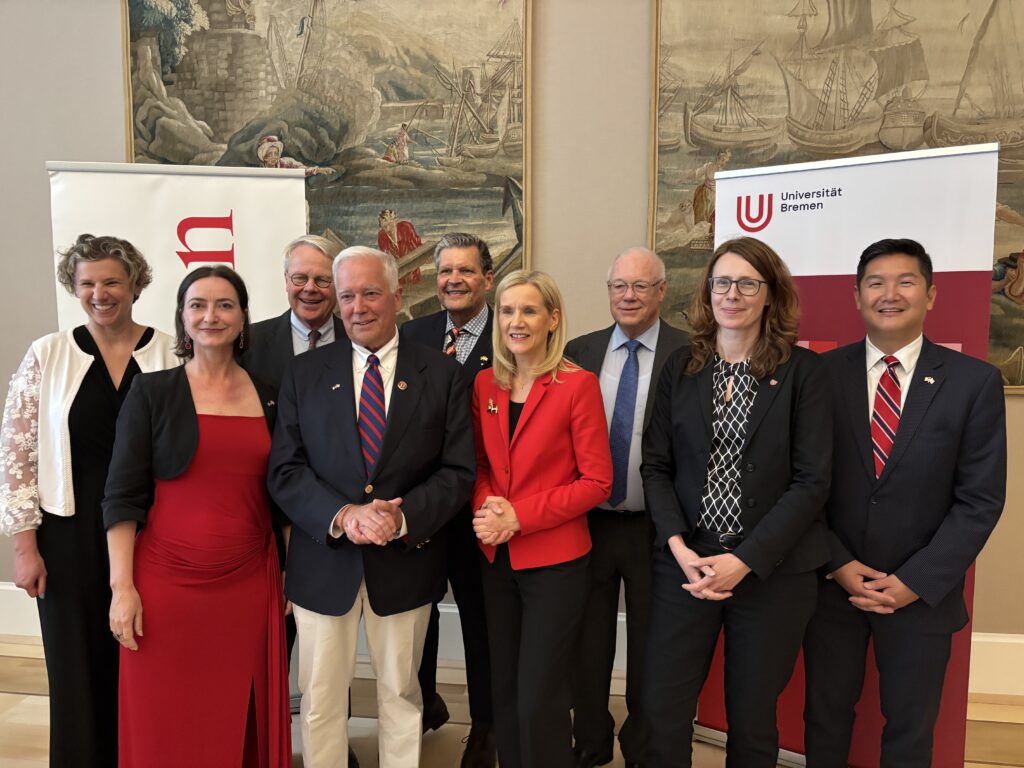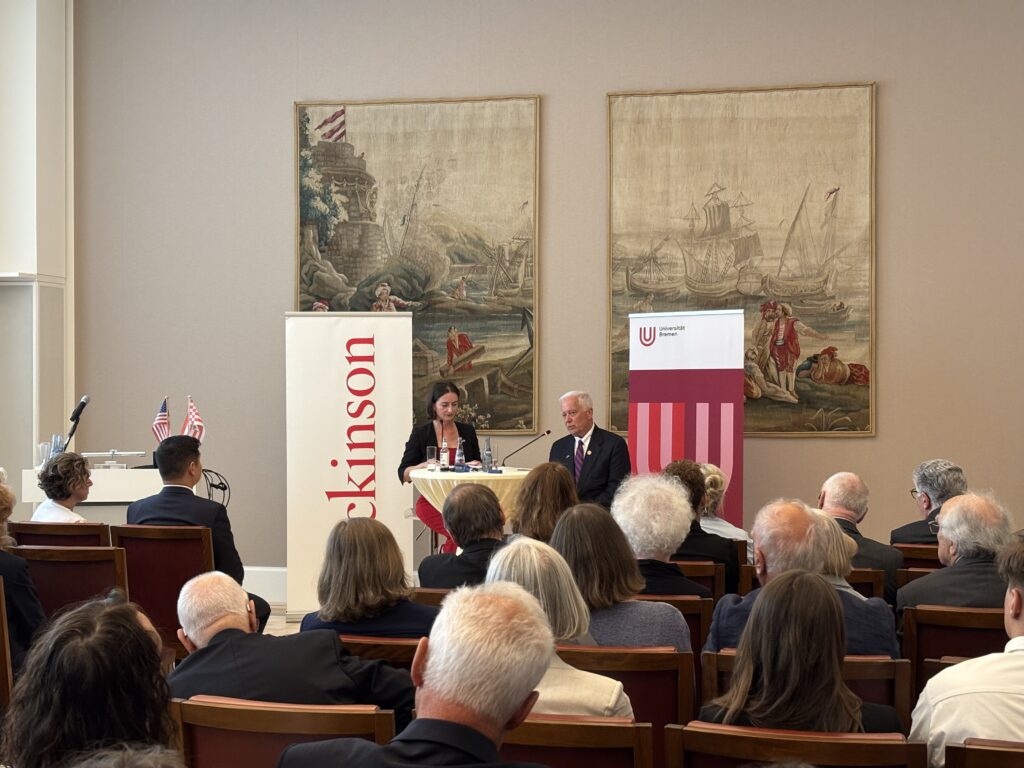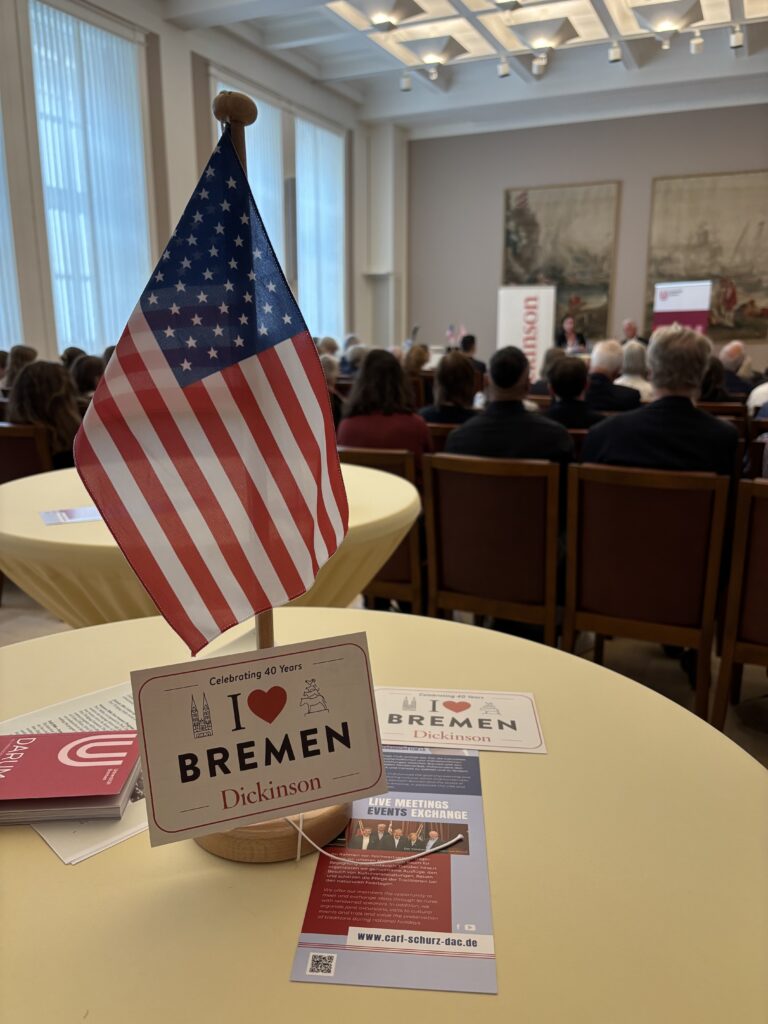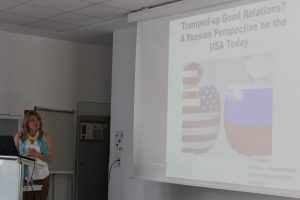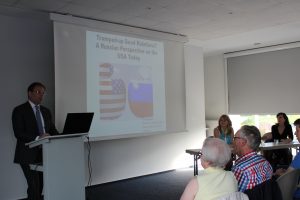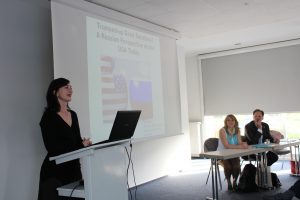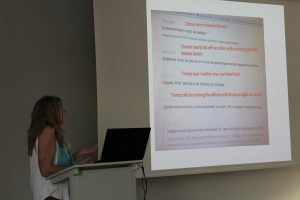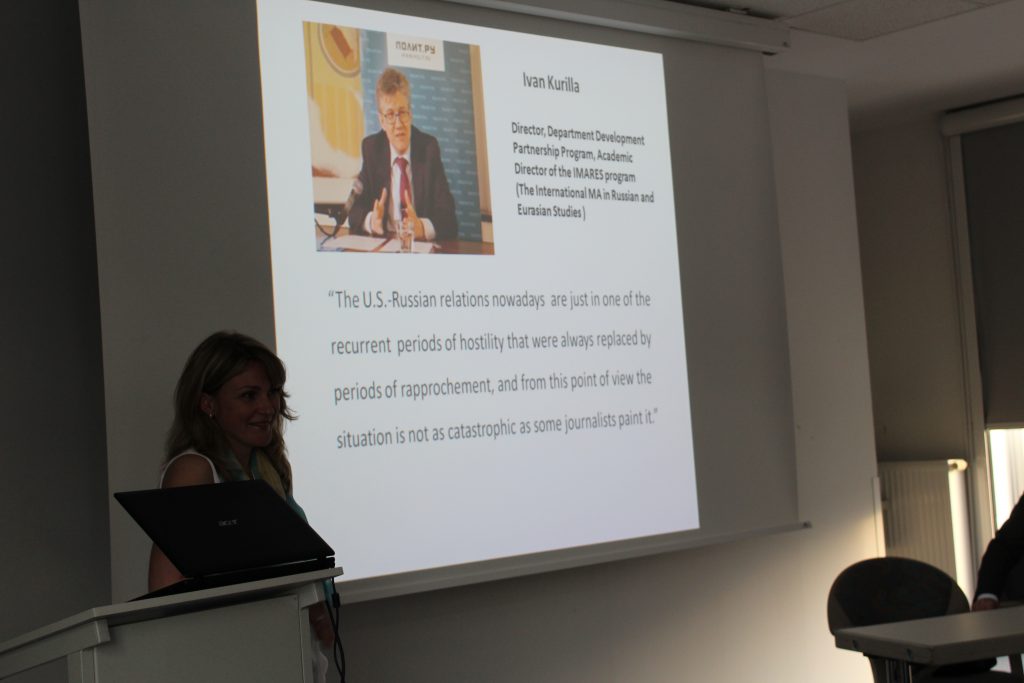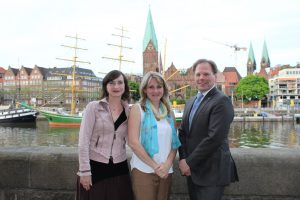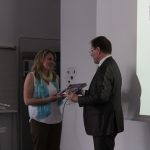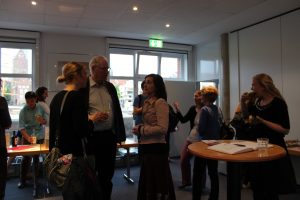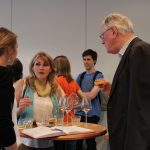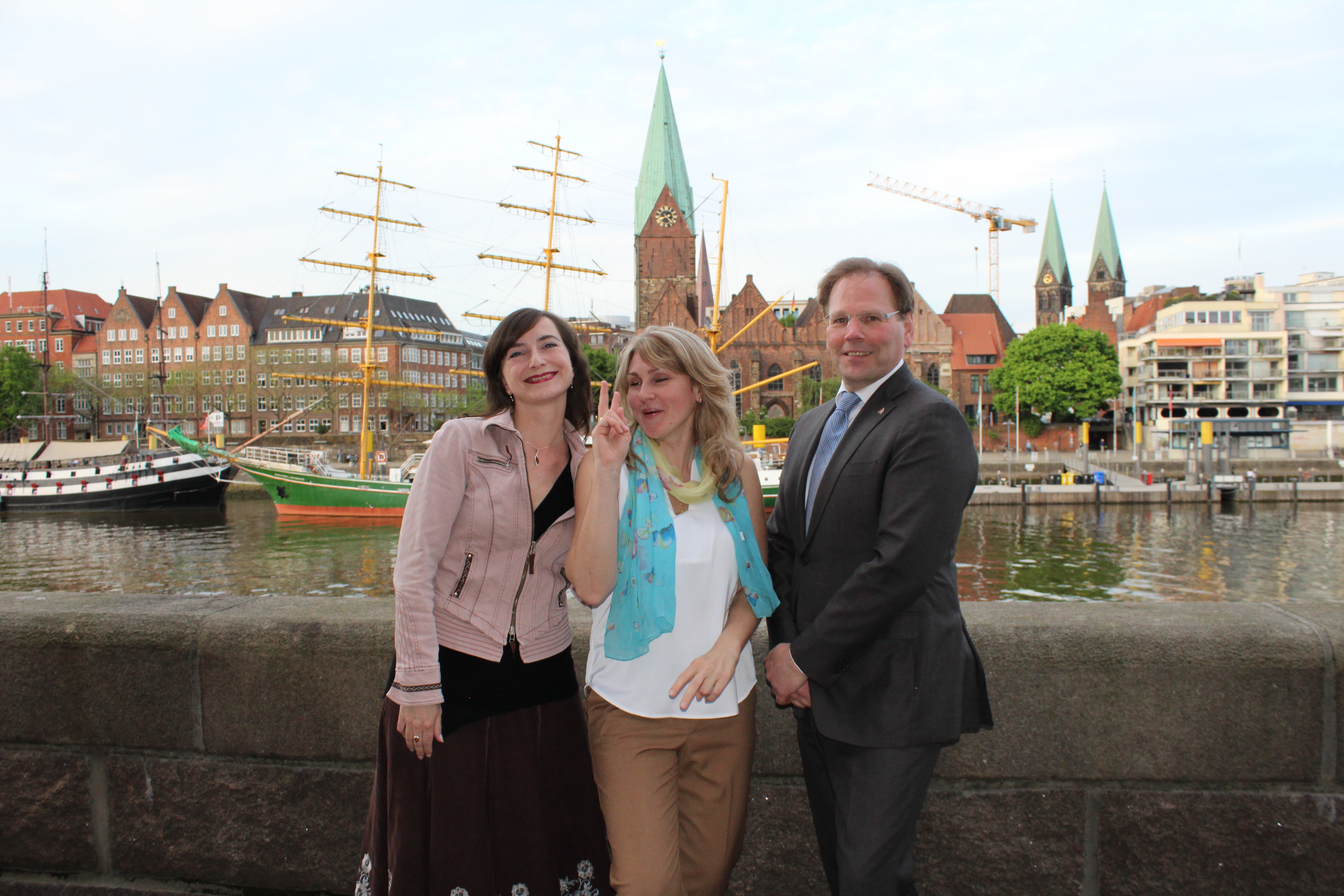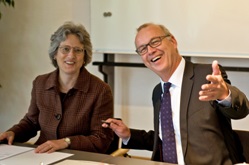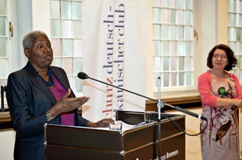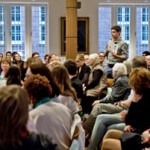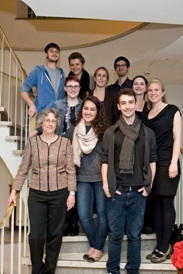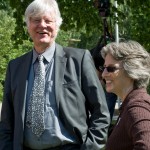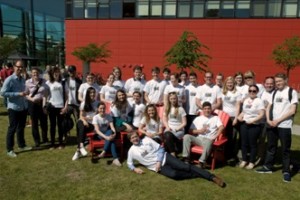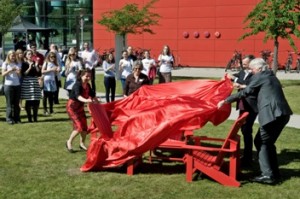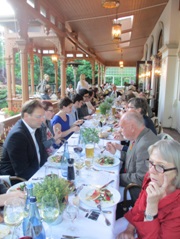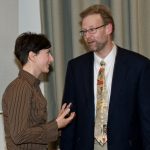Tuesday started with a visit of the University of Bremen Law Faculty, which recently moved into their new building Forum am Domshof in the city center. Two professors and former judge President Jones got a chance to have a chat about their specialties and the different legal systems of our two countries.
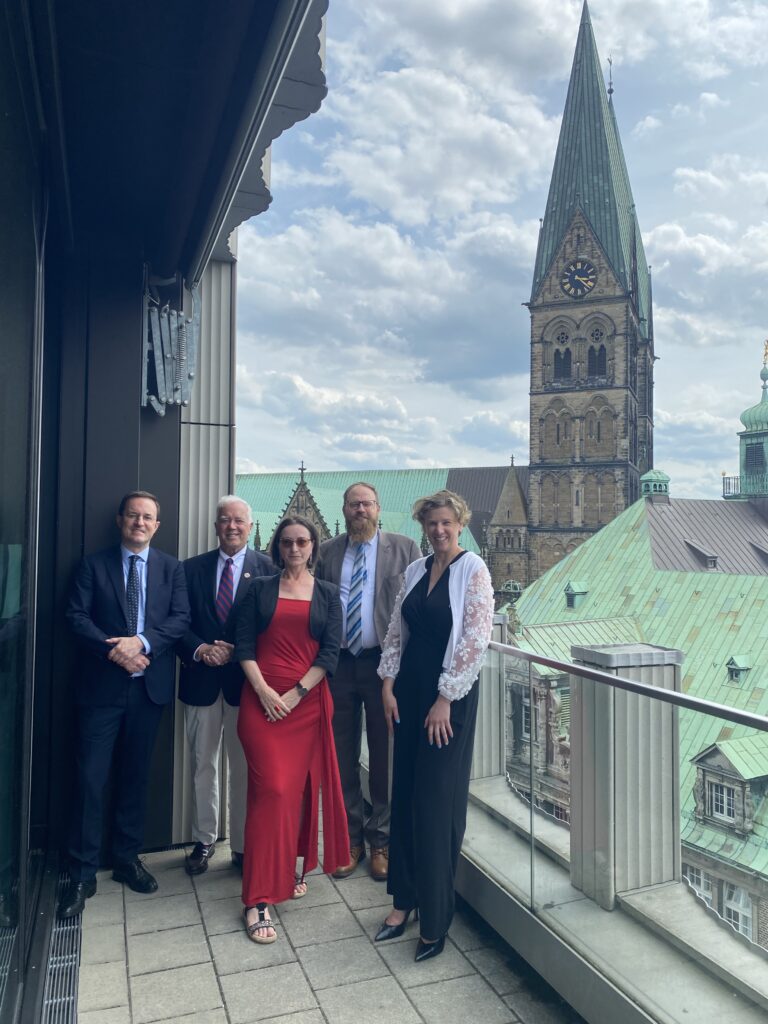
Afterwards, the newest Dickinson Chair on the University of Bremen campus was inaugurated. Exactly ten years after the unveiling of the first three “Dickinson Chairs” on campus, this is the first chair at the new Forum at Domshof campus. The “Dickinson Chairs” in Bremen symbolize the enduring partnership between the institutions.
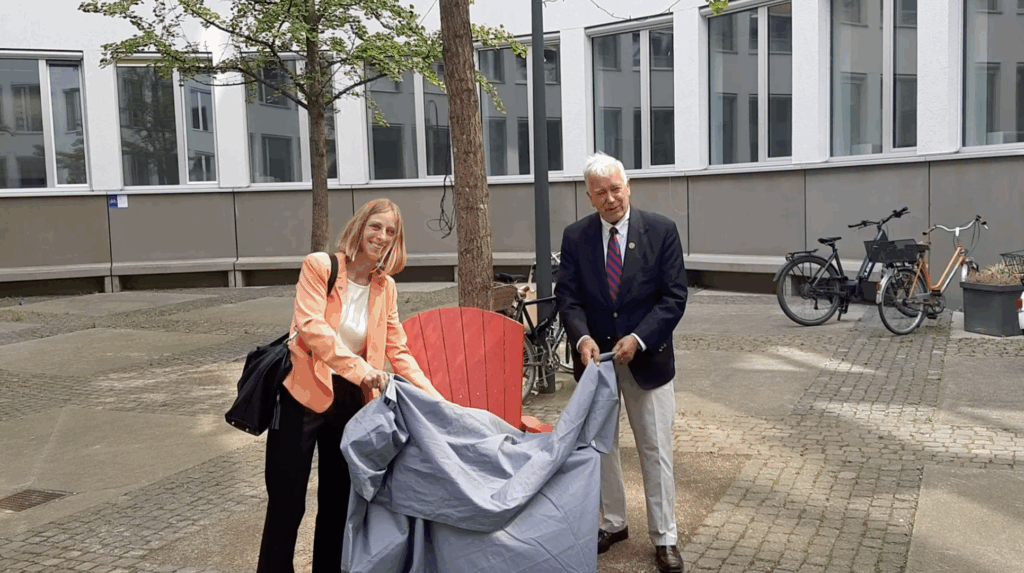
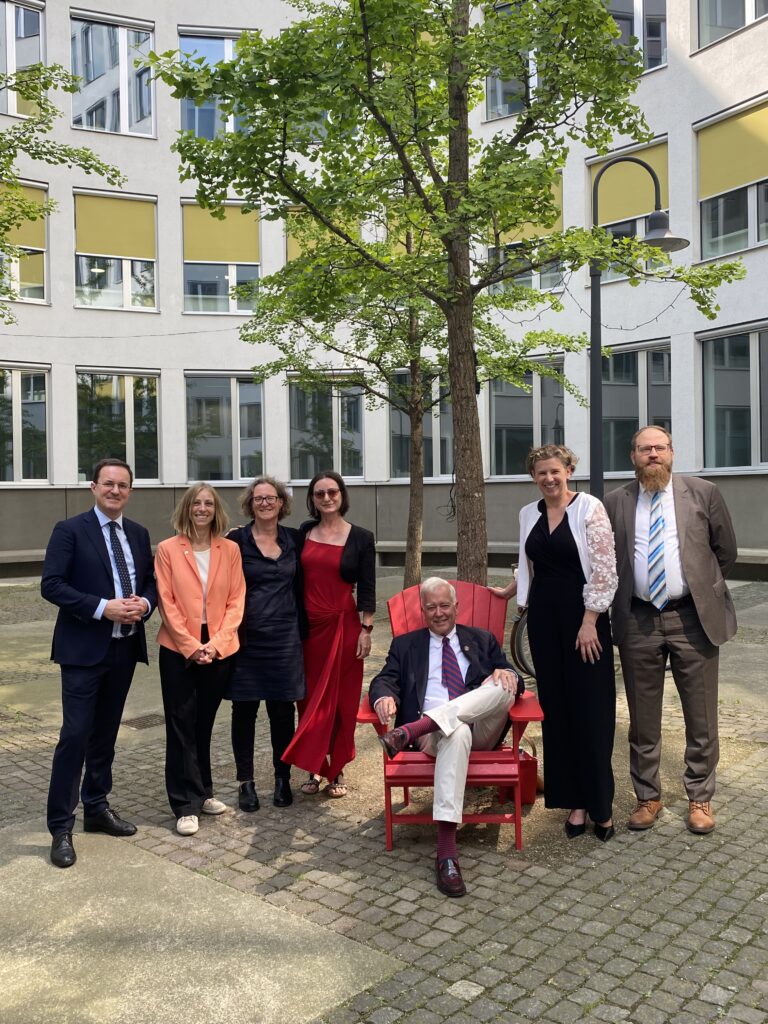
In the afternoon, President Jones and his wife Beth were given an exclusive tour at the late medieval Town Hall, together with Consul General Jason Chue (Consul General at the U.S. Consulate General in Hamburg) and former College President Bill Durden and his wife Elke, among others
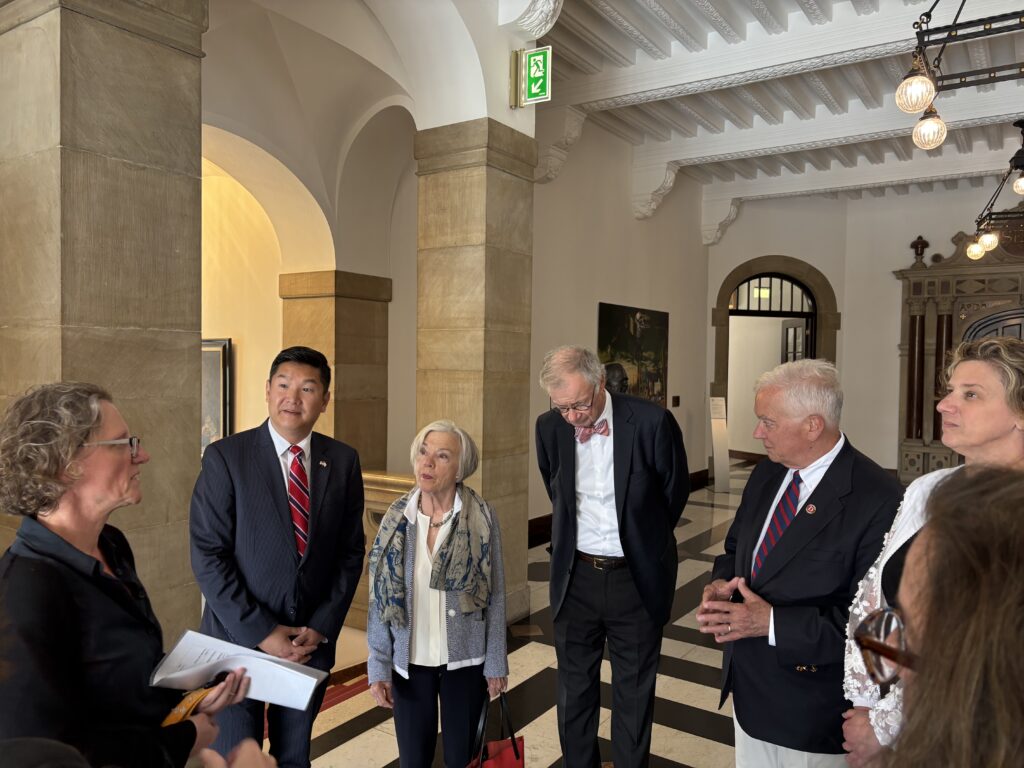
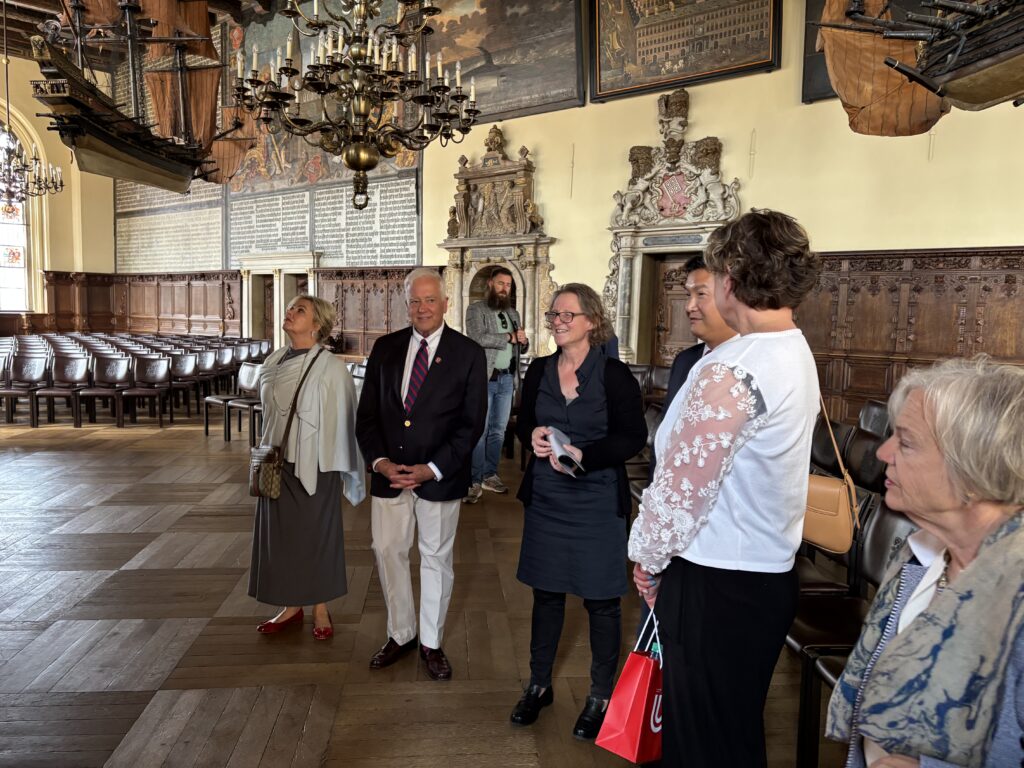
The exclusive tour was given by Dr. Annette Lang (Head of Division International Cooperation and Development Cooperation at the Senate Chancellery of Bremen and former head of the International Office at University of Bremen).
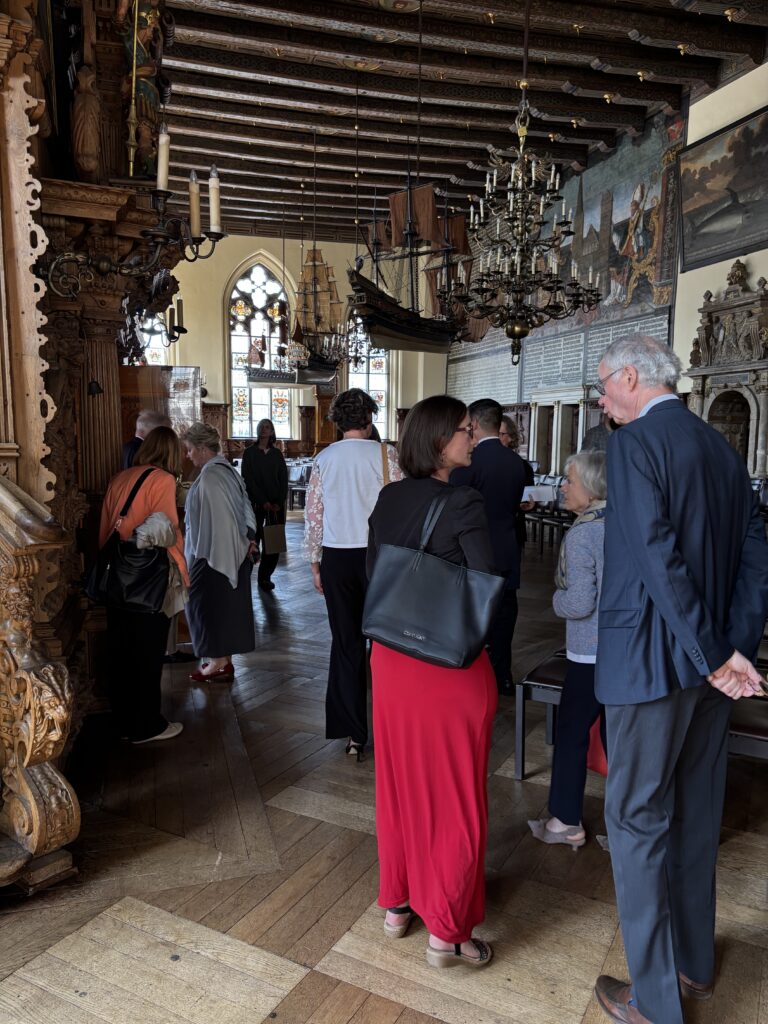
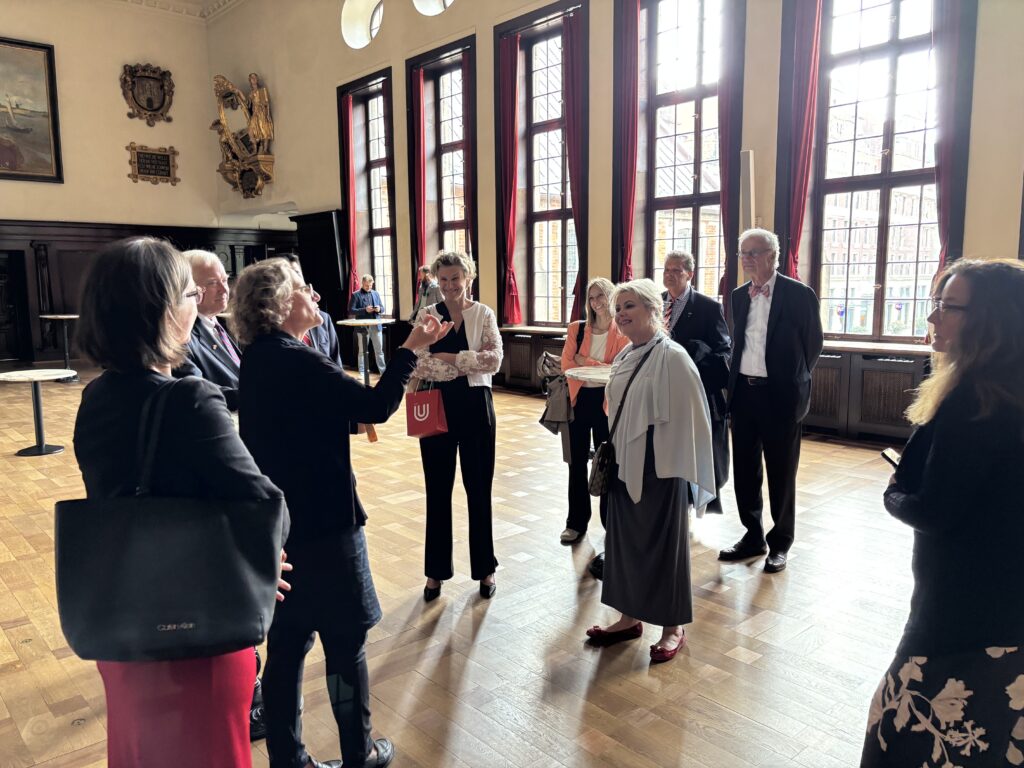
During the visit at the town hall, the group also had a special meeting with Mayor Andreas Bovenschulte who warmly expressed his personal dedication to the transatlantic partnership.
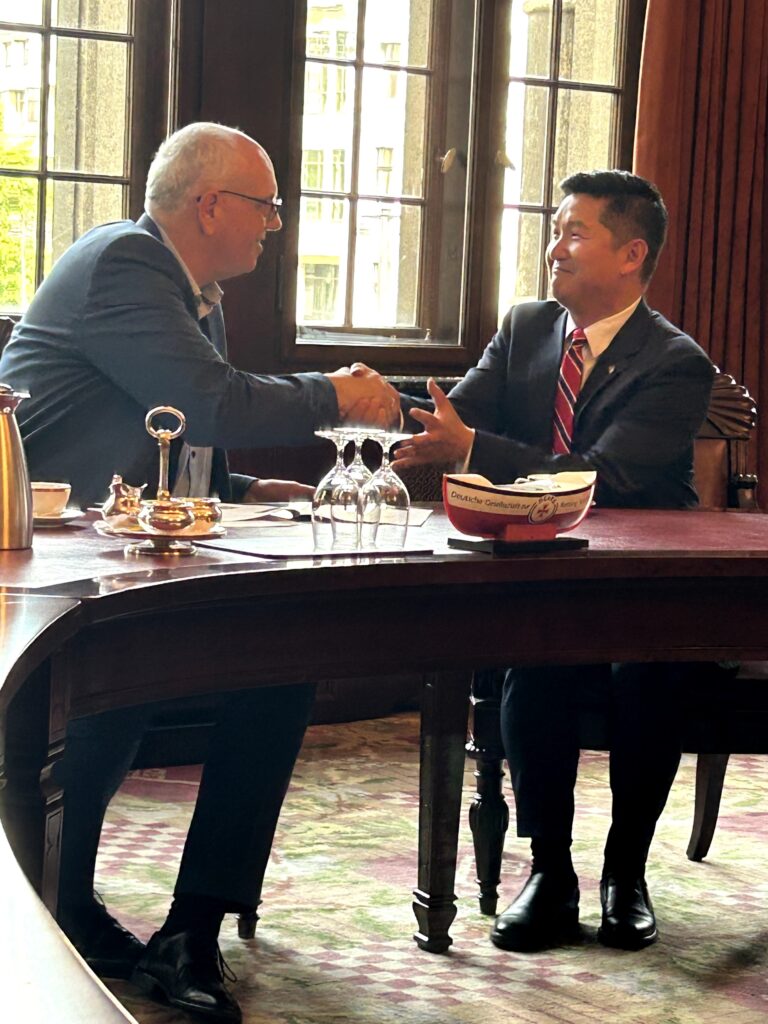
Dickinson College Public Lecture
In the evening, the sixth Dickinson College Public Lecture took place at the Schütting, the16th-century house of the Chamber of Commerce at the market square of Bremen. Almost 100 people attended the festive event.
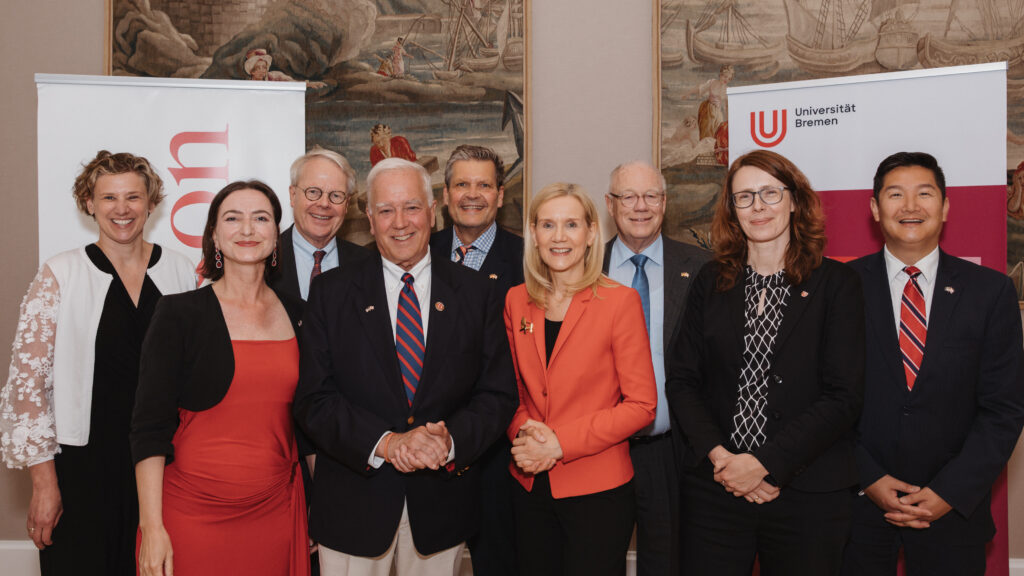
front row, from left to right: Dr. Janine Ludwig (Academic Director of the Durden Dickinson in Bremen Program), Dickinson College President John E. Jones III, Prof. Dr. Jutta Günther (Rector of the University of Bremen), Dr. Mandy Boehnke (University of Bremen Vice President for International Affairs, Academic Qualification, and Diversity), Jason Chue (Consul General at the U.S. Consulate General in Hamburg) ©Matej Meza
The evening began with greetings by Eduard Dubbers-Albrecht (Vice President of the Chamber of Commerce Bremen) and Ulf-Brün Drechsel (President of the Carl Schurz German-American Club), followed by welcome addresses delivered by Prof. Dr. Jutta Günther (Rector of the University of Bremen) and Jason Chue (Consul General at the U.S. Consulate General in Hamburg).
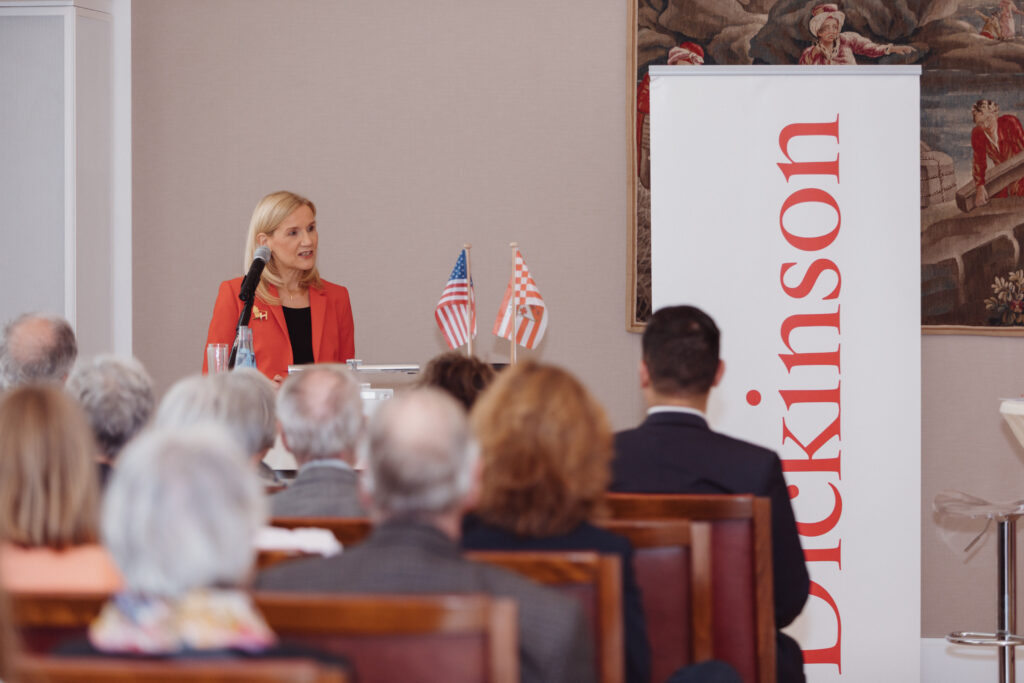
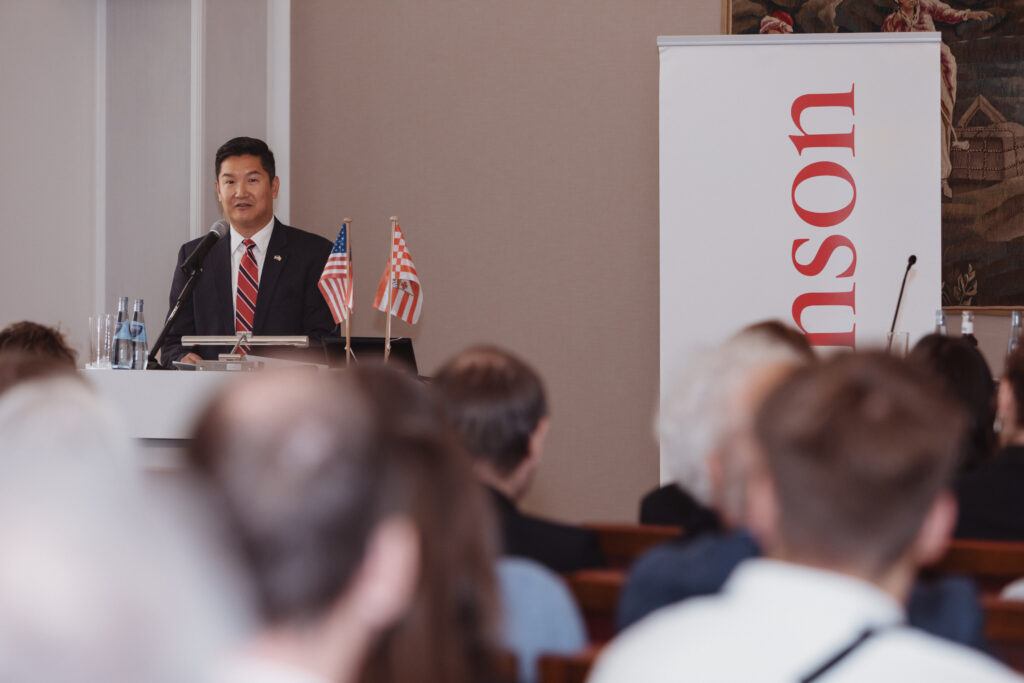
Then, Dr. Ludwig spoke with President Jones about the new US Administration. At the end of the insightful interview, the guests had the possibility to ask questions to President Jones, and many seized this opportunity.
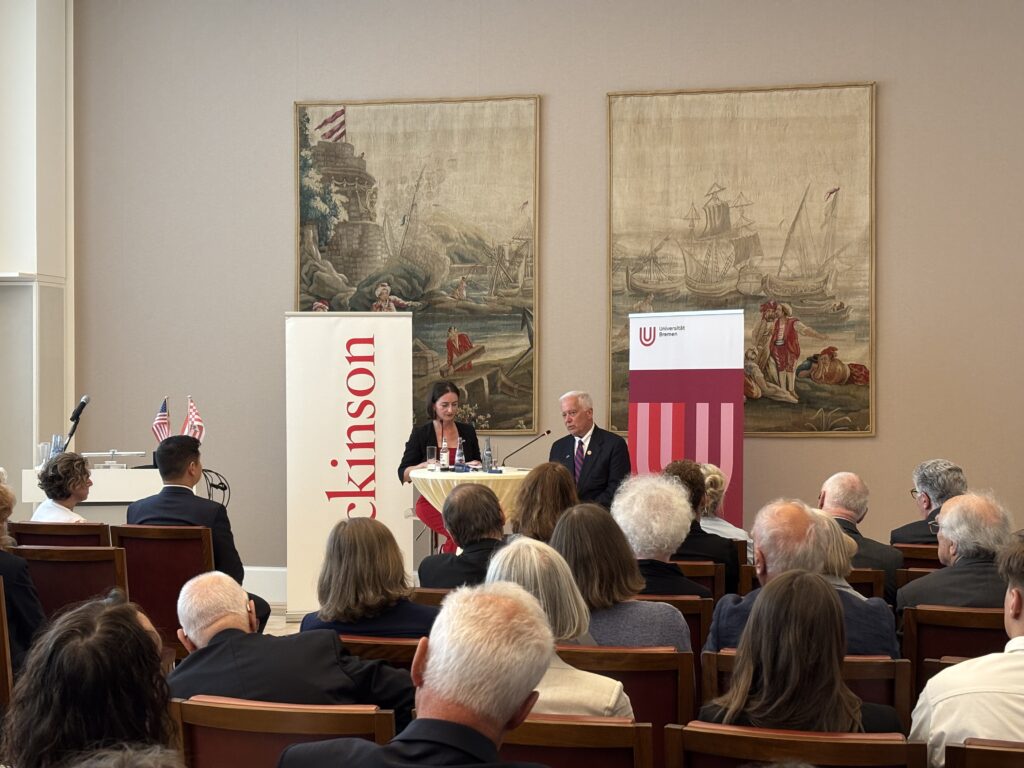
© Antonia Gabler
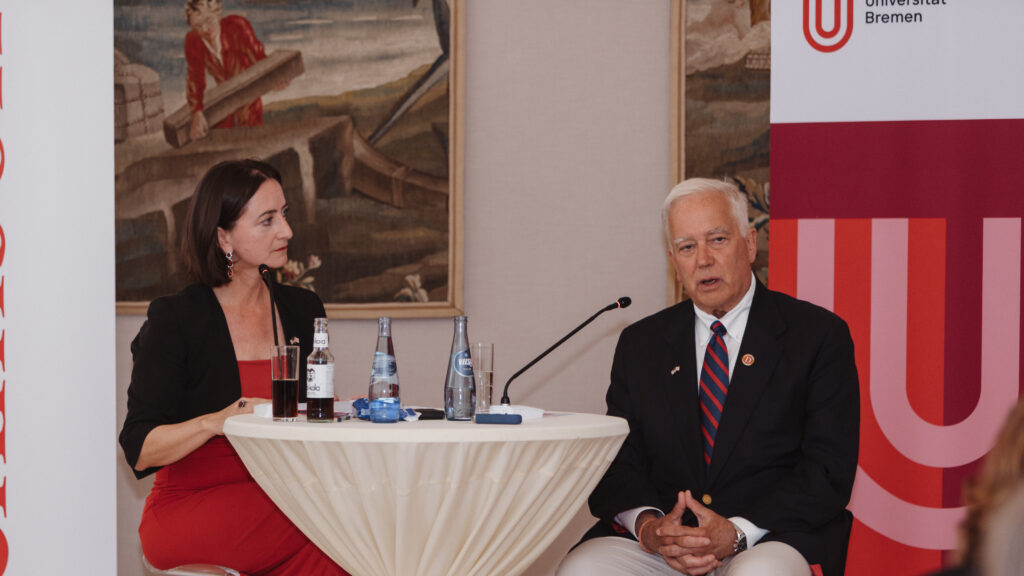
The event was concluded with a reception during which students & alumni engaged in stimulating conversations with experienced transatlanticists & representatives and made many new contacts.
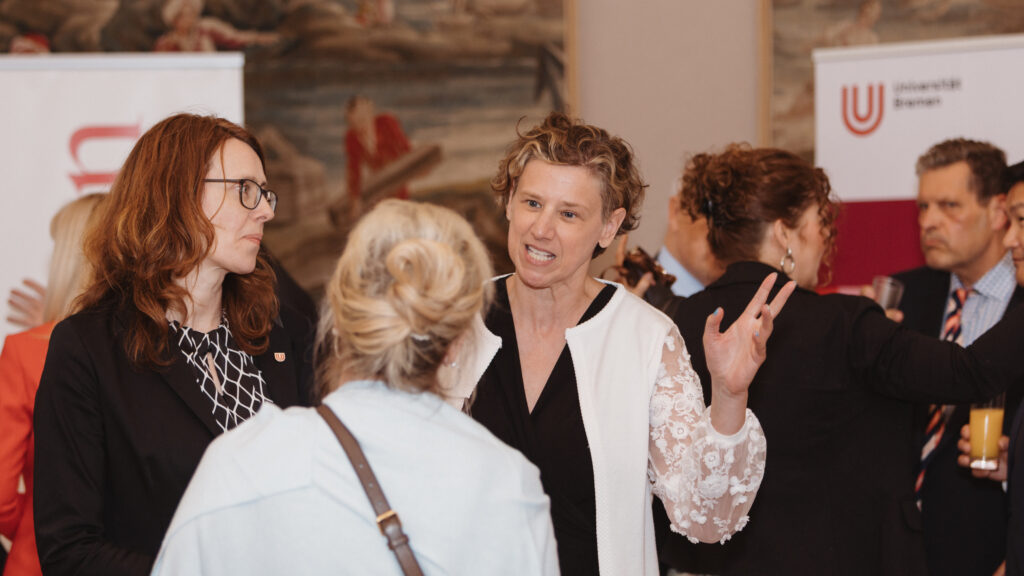
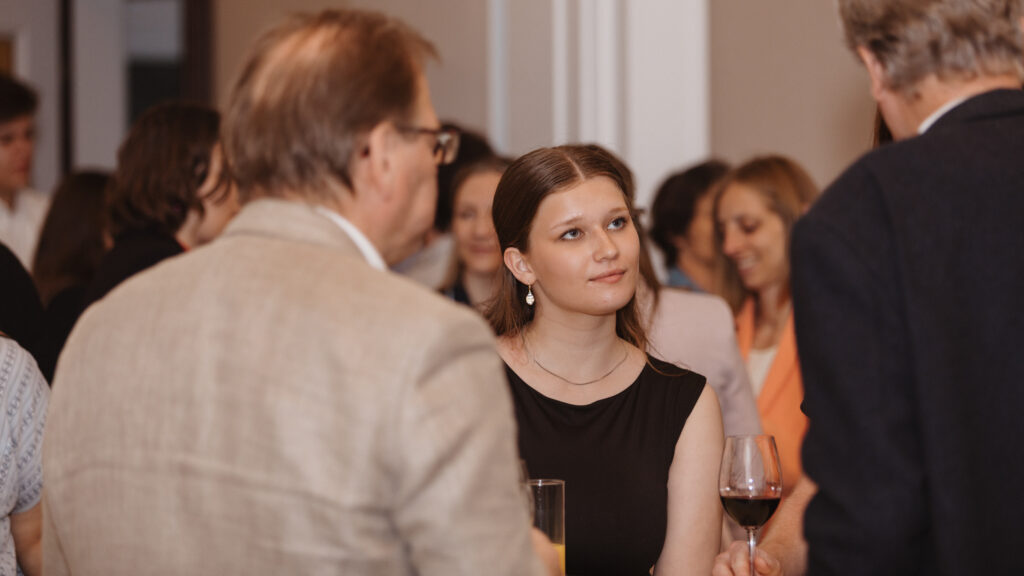
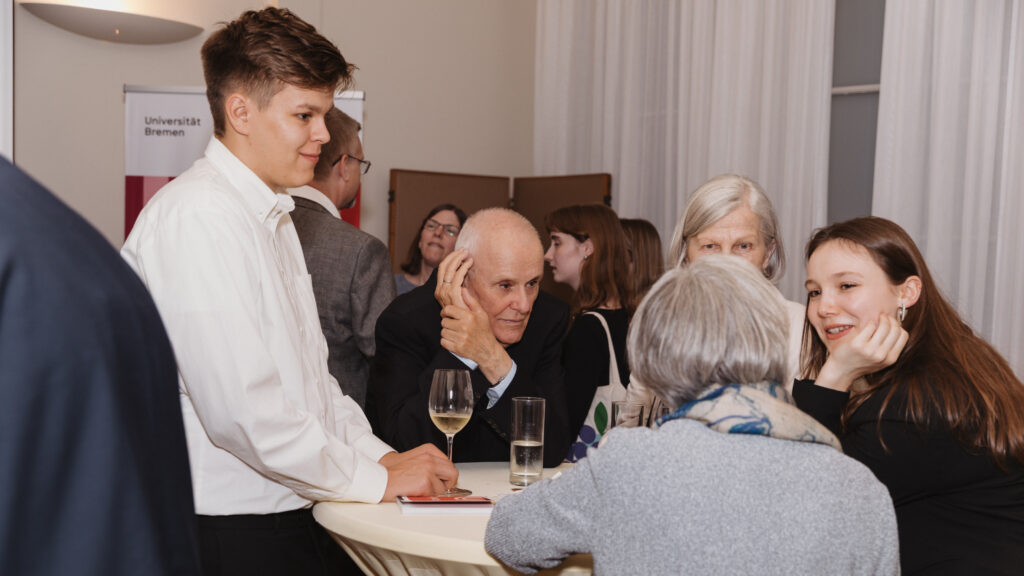
Dickinson College Public Lecture – an event organized by our program, in cooperation with the University of Bremen and its International Office, the Carl Schulz German-American Club, and the Amerikazentrum Hamburg, represented by Sarah Altmann.
